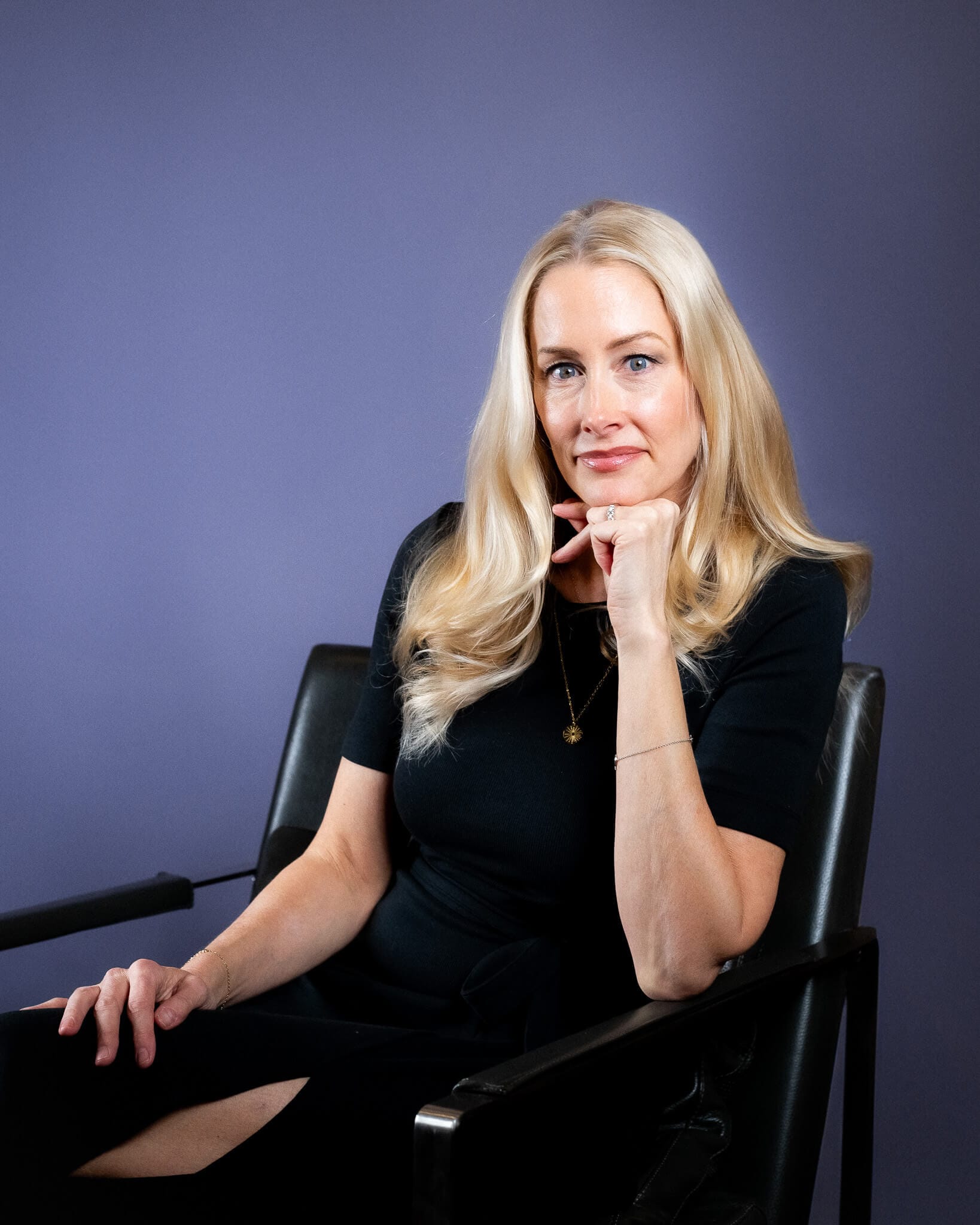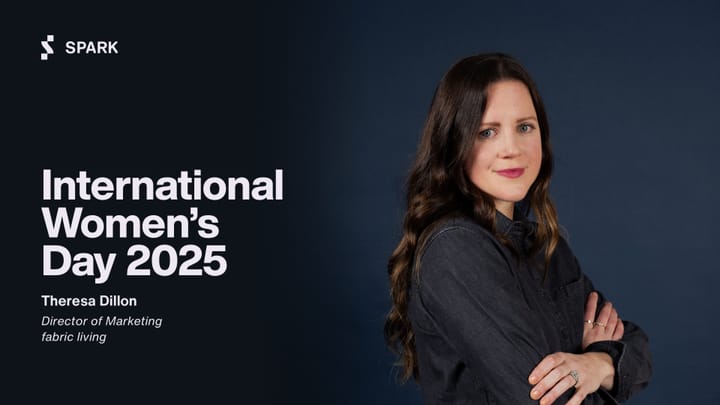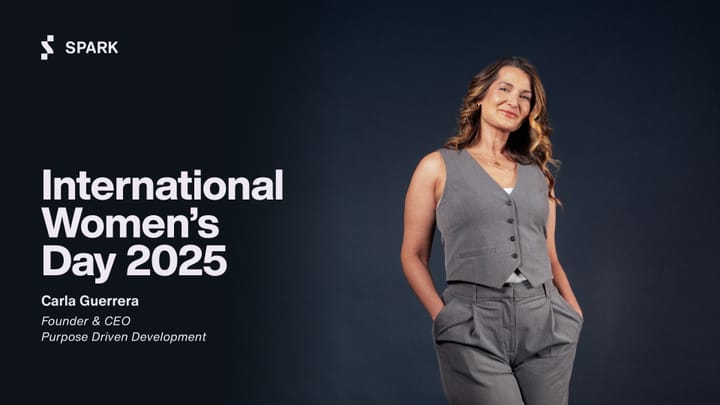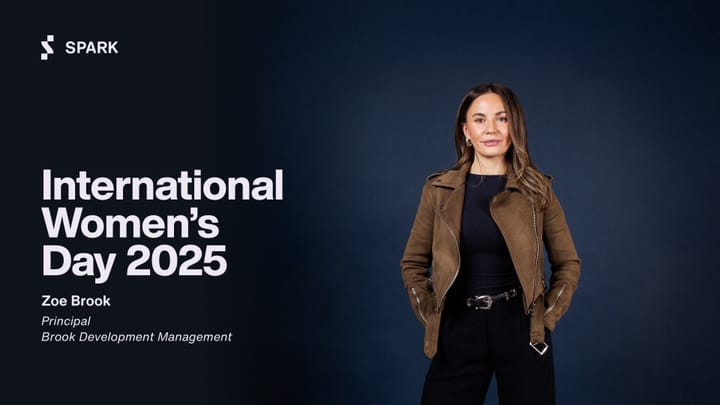International Women's Day 2024: Jean Openshaw
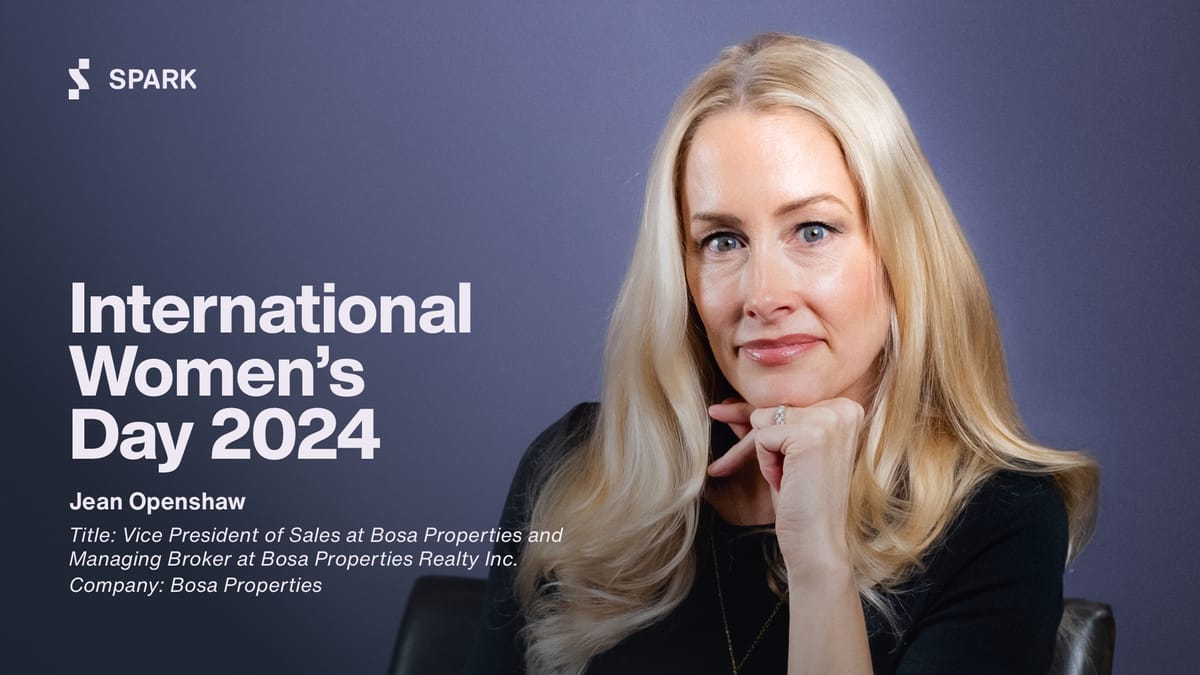
Getting her start as a sales associate, Jean Openshaw worked her way through the industry to become the Vice President of Sales at Bosa Properties, one of Vancouver’s premier development firms. As a 17-year veteran at Bosa, Jean shared with us how she got her start in the industry, how a closed door can lead to better opportunities and more.
Let's get started. Jean Openshaw, thanks so much for joining. I understand you've been Vice President of Sales for Bosa Properties for quite a while and have had an illustrious career.
Yes, I've been at Bosa properties for about 17 years and became the Vice President around 2018. I started there as a sales assistant and then just, plugging my way through, worked my way up.
Did you intentionally go into real estate or did you stumble upon it? How did your interest start?
So when I first entered the industry, I didn’t even know about pre-sale but somebody who I knew was looking for people to write contracts in the pre-sale environment. Once I got into it, I was more interested in it because you're working with a team of people. I liked the idea that we were all rowing in the same boat. Everyone on the team has their own little niche, and I ended up learning a little bit from everyone. The longer I was in it, the more I picked up.
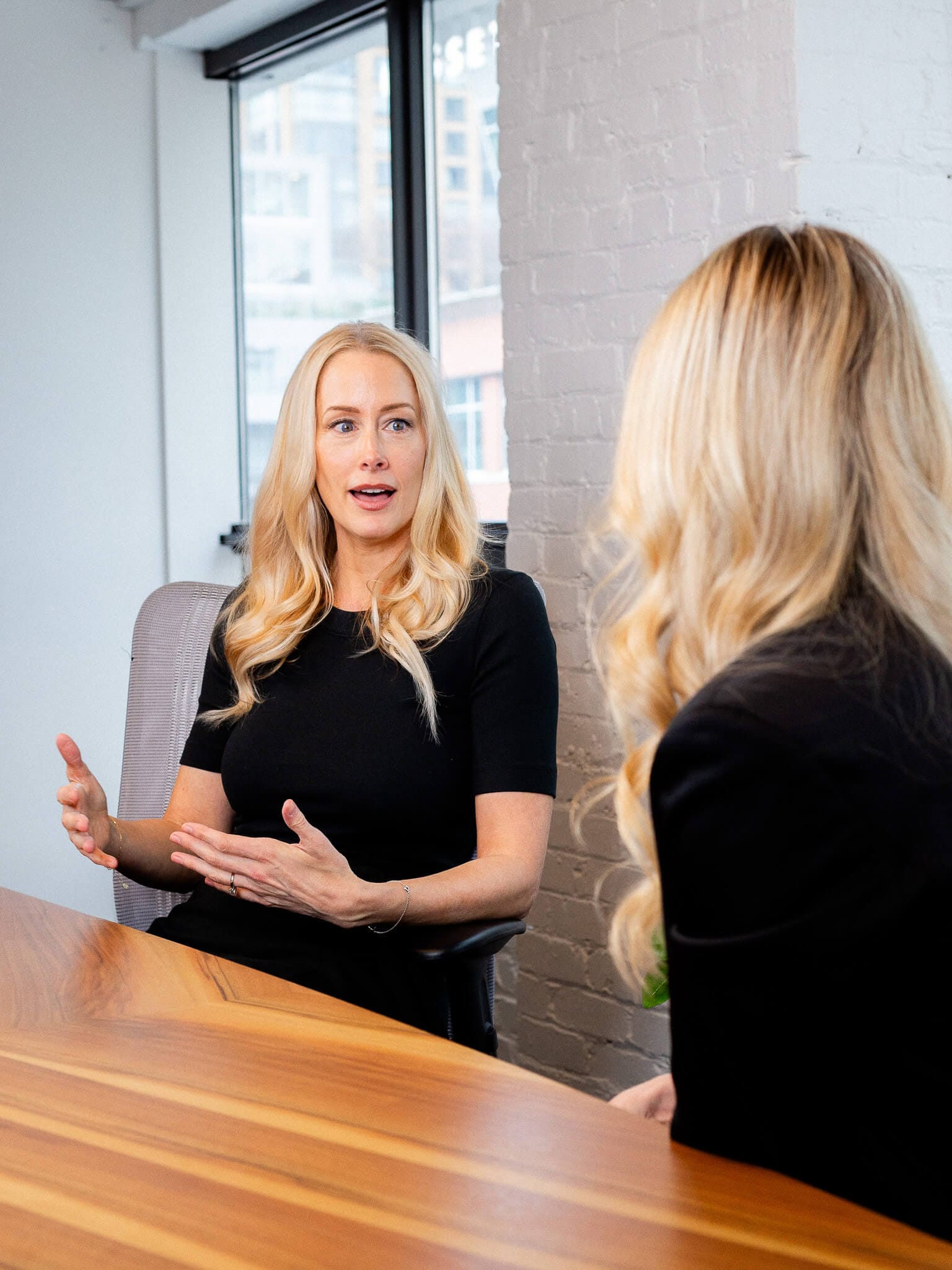
You've obviously worked on so many projects over the last 17 years. Was there a defining project or a moment in your career that you can say, ‘this is something really special’?
For me, it was the first project ever worked on, which was Miramar Village in White Rock. It was the first part of the Miramar Village master plan and we were mostly selling to downsizers, which is a long process. There was one couple that came in 14 times. It took four years to sell that project out, because of the 2008 recession and things were a bit rocky. But in those four years, I actually probably learned more from that project in sales than I did combined in a lot of the ones that sold really quickly. I learned all the different tactics because we were in the trenches and had no other option but to try and make it work. Whether it was offering new promotions or trying new things, you have to figure out a way, right? But I always felt like positivity was just around the corner, like something good was about to happen, and we eventually were able to sell it out.
How about mentors, whether they're traditional to find mentors in your life that you kind of like had a little social contract with, like you're my mentor or maybe just people that you've admired along the way. Is there anyone that's helped kind of shape your career or work related goals?
I don't think I've actually had a conversation with someone where I said ‘you are my mentor’. [laughs.] But I think there's been multiple people along the way that I have admired to varying degrees. I've had a few different bosses along the way and they've each been excellent in different ways. Where one taught me a lot about certain things in business, and the other one taught me a whole different set of things, right? Right now, I have a great female boss, Sally Parrott, and before joining Bosa she was actually working at Aritzia in the fashion industry. She brings such a fresh perspective and has had such a great ability to look at this company and see how it could scale and then brings in the systems that allow it to scale. Then prior to Sally, I had Daryl Simpson, who I worked with for over 15 years. He's a dear friend now and I learned an immense amount from Daryl. He was always and is a big supporter of women, as well.

What would be some good advice to someone that's trying to get into the industry now?
My husband, who also works in development, and I always say there's this old adage that you overestimate what you can do in two years but underestimate what you can do in five. You think you're going to be further along in the very short term but you don't realize the potential of where you can actually be in five years. I think I've always had a mentality of being consistent, showing up, doing the work and haven't really chased the next position. The next position always found me because I already had obtained the skills that I needed by just being in the trenches. My mentality was, I don’t want it until I’m ready and when I’m ready, it's going to come to me and I'm going to magnetically attract it anyway. Just by being consistent, I'm always surprised how the next opportunity does come to you.
Maybe that's part of me being from Gen X and being like ‘I’m going to work for one company forever’, right? [laughs.] But before I came to Bosa, I don’t love to admit this, but I actually got fired from the first company I was working at. Looking back, I think it actually was the best thing that ever happened to me, because then I got to Bosa and I really felt appreciated. I felt like they liked the skills that I brought and I really jived with the people there. I loved the idea of the quality that they were trying to build on and just the integrity that they had. It felt very much like home. So it's not the worst thing in the world to be fired from somewhere because a lot of times it's the next door that opens where you were meant to be anyway. It's kind of like a relationship ending, right? [laughs.] You always look back and you're like, actually, I'm glad that it ended. So if you feel like you're swimming upstream or something's just not working, it might be the best thing to move on as well.
Cool, we’ll end the interview on one final question. You mentioned you're seeing more women with a larger influence in different departments beyond where women traditionally worked in. Have you observed any positive changes or initiatives in the industry to kind of help promote diversity and women in the workplace?
Yeah, absolutely. I think in our company, I think the visibility of seeing more women in the executive or the senior leadership team has been really helpful. While the sales side has often been predominantly led by women, the development and construction world has been very much focused on the male roles in those leadership roles. So I think seeing more visibility of women in those roles is definitely helpful.
I think something else that's helped at Bosa is knowing that even if the issue a female might be having somewhere else in the company, they can always come to you as a leader in a different department and get your advice or have you advocate for them, which I think is really helpful as well. Generally I feel like the women in this company want to help each other. I think that we want to see more women in those leadership positions and we want to advocate for each other.
One thing I would love to see more of is the acceptance of different communication styles. Females and males communicate differently. I think in the corporate world, it's been very much accepted to express frustration through anger and yelling. Sometimes for a female, they express frustration by crying, which is sometimes seen as weak or that you're not as strong. It's not that at all. It's just that's how some females express their frustration and it's just different. I think as you start to see a bigger balance, you'll see more acceptance that all of it is okay. At the end of the day, we're all trying to work in the same direction and accepting our differences in how we express our emotions would be a great step forward.
